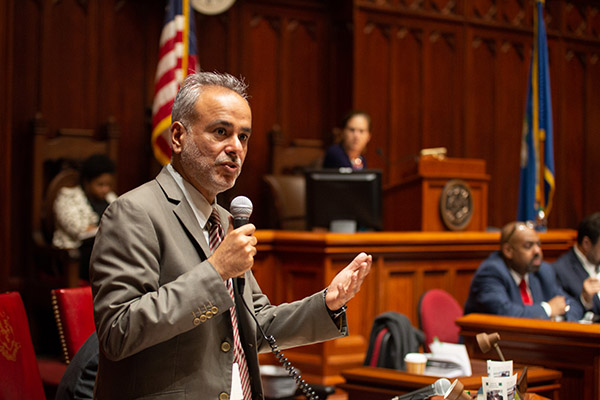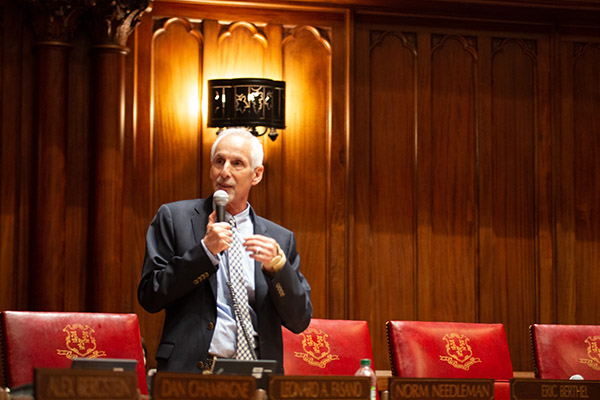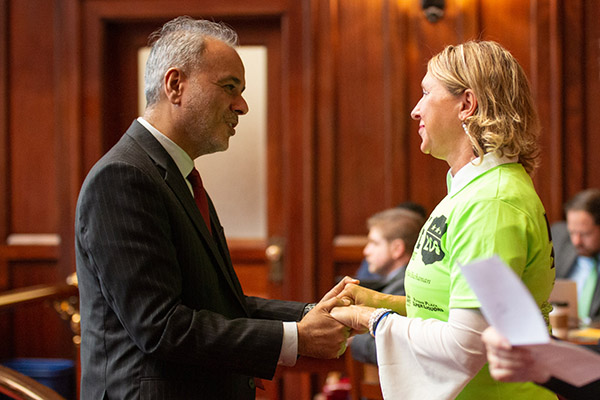Senator Maroney Celebrates As Senate Raises Smoking Age To 21
HARTFORD, CT – Today, State Senator James Maroney (D-Milford) celebrated the Senate’s passing of legislation raising the smoking age, or age where someone can purchase tobacco products, from 18 to 21. This legislation passed by a bipartisan 33-3 vote and is part of a push to counteract the increase of youths smoking, especially youth use of tobacco vaporizers or “vapes,” which the Surgeon General called an “epidemic” in December 2018.
“The bipartisan nature with which this legislation was passed sends a clear message that we are committed to protecting young people from smoking and vaping,” said Sen. Maroney. “There is an epidemic of vaping in our high schools and middle schools and we need to do all we can to keep these products out of the hands of teens.”
House Bill No. 7200, commonly referred to as “Tobacco 21,” raises the legal purchase age of cigarettes, e-cigarettes, vaping products and other tobacco products from 18 to 21, additionally strengthening other laws. In addition to raising the age of access, the bill increases penalties for tobacco sales for individuals under the age of 21 and bans smoking and e-cigarette use on school and child care center grounds, among other changes to current laws.
Businesses found to sell tobacco products to underage patrons will see fines increased from $200 to $300 for first offenses, from $350 to $750 for second offenses, and from $500 to $1,000 for further offenses.
This bill comes as data shows an increase in youth and underage tobacco use, specifically of vaping products. In 2018, more than 3.6 million youth across the United States – including 20 percent of high school students and 5 percent of middle school students – reported using e-cigarettes, according to the Surgeon General. Vaping products also have led to concerns about public health, as they utilize chemicals that are seen as unsafe. They are also often sold with “sweet” flavors, and the chemicals used in those flavors pose additional health risks. The Centers for Disease Control said in 2016 that vaping flavors can facilitate nicotine addiction and simulated smoking behavior.
The bill also closes a significant loophole that will prevent youth access to tobacco products, as it requires online e-cigarette sellers to obtain the signature of someone 21 or older when delivering a package. This prevents underage shoppers from obtaining vapes or other smoking products without having to show identification or prove they’re of age.
Before the bill reached the Senate, the House approved it by a bipartisan 124-22 vote, and 53 Senators and Representatives co-sponsored the legislation. Its approval would make Connecticut the 12th state, in addition to the District of Columbia, to raise the age of access to 21.



